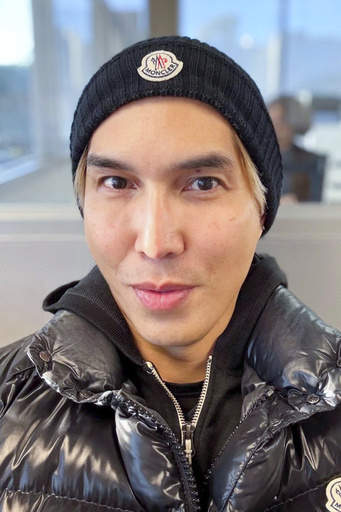For years, individuals navigating the U.S. healthcare landscape have expressed their mounting frustrations over a seemingly opaque bureaucracy.
Doctors may be part of an insurer’s network one year but removed the next, and acquiring assistance through customer service can feel nearly impossible. Additionally, many patients find that their coverage for necessary procedures and medications is often abruptly denied.
The recent tragic shooting of UnitedHealthcare’s CEO, Brian Thompson, has sparked a surge of public sentiment characterized by exasperation, anger, and helplessness, as many Americans share their own encounters with insurance firms, which are frequently viewed as impersonal corporate entities.
Particularly striking were the words found scrawled on ammunition at the crime scene—“delay,” “deny,” and “depose”—which resonate with phrases commonly used to describe an insurance practice of avoiding claim payouts. This incident has amplified the outcry against the industry from those who have long been critical.
Tim Anderson, for instance, feels reignited passion over the topic following Thompson’s death. He recalls how his late wife, Mary, faced uphill battles with UnitedHealthcare regarding coverage denials tied to her Lou Gehrig’s disease diagnosis.
Anderson struggled to secure vital equipment that would assist Mary in breathing and communication, resorting to financial help from a local ALS group when insurance support was lacking. “The business model for insurance is don’t pay,” expressed Anderson, 67, from Centerville, Ohio.
“My wife encouraged me to keep fighting against this,” he added. “These issues need to come to light.”
As details of Thompson’s tragic end circulate, many like Anderson are beginning to share their frustrations openly. Conversations regarding healthcare issues have transformed dinner discussions, water cooler talks, social gatherings, and even social media threads as the police continue their efforts to apprehend the assailant.
Hans Maristela, a caregiver from California, resonates with the ongoing discussion. He took to Facebook to voice his concerns over UnitedHealthcare’s perceived tendencies to deny coverage. Despite feeling grief over Thompson’s loss—especially with the holiday season approaching—he highlights that even affluent elder clients are grappling with significant out-of-pocket expenses.
“The CEO of a company that charges high fees earns $10 million annually. It’s hard to feel sympathy,” said Maristela, pointing out Thompson’s extensive compensation package. “While I understand healthcare is a business, the relentless focus on profits needs reconsideration.”
Researcher from the University of Pennsylvania, Michael Anne Kyle, is unsurprised by the uptick in discussions surrounding insurers.
“People often struggle in silence, and seeing others speak out can inspire them to join in,” she observed.
Kyle, who studies patient care access, has noted a growing sense of frustration prevalent within the system over the last few years. Costs continue to rise, and insurers are implementing stricter controls, such as prior authorizations and selective doctor networks. As a result, patients frequently find themselves caught in disputes between healthcare providers and insurers.
“Patients are already incurring large bills, and on top of that, they’re facing service-related challenges,” she added.
Insurance companies often argue that a significant share of their revenue is reinvested to cover claims and manage rising healthcare costs, as well as to curb the overutilization of certain services.
In Ohio, Anderson’s immediate response to the CEO’s shooting was to ponder whether it was linked to an insurance denial, similar to those he faced with his wife’s medical needs.
“I absolutely do not support violence,” he stated, “but it did make me wonder if someone else was suffering due to denial of care.”
Will Flanary, a comedian and ophthalmologist based in Portland, noted that there was swift public reaction regarding the lack of sympathy expressed towards Thompson following the incident.
“There’s undeniably no empathy,” he observed. “The key takeaway shouldn’t be to condemn those celebrating this tragedy but rather to recognize the deep-seated anger towards a healthcare system perceived to exploit vulnerable individuals and to work towards reform.”
Flanary, known for his online persona as Dr. Glaucomflecken, initially used humor to cope with his struggles with personal health challenges, including two cancer diagnoses and a cardiac arrest. His platform has since grown to include skits that critique and draw attention to the actions of large healthcare insurers, including UnitedHealthcare.
He noted that the heightened discussions around healthcare policy in the wake of Thompson’s shooting have been unprecedented, and expressed hope that this momentum could lead to meaningful change.
“Social media can wield tremendous power in advocacy,” Flanary asserted, “as it remains one of the few avenues capable of applying pressure on corporations that exploit patients.”


